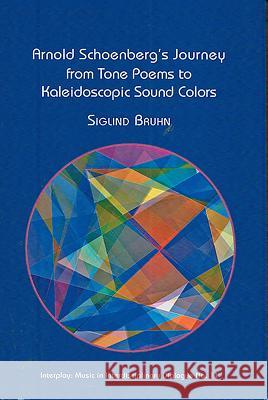Arnold Schoenberg's Journey from Tone Poems to Kaleidoscopic Sound Colors » książka
Arnold Schoenberg's Journey from Tone Poems to Kaleidoscopic Sound Colors
ISBN-13: 9781576472484 / Angielski / Miękka / 2015 / 368 str.
"This study traces the evolution of Schoenberg's musical language during his formative years by offering in-depth analyses of eighteen significant compositions. These include works for solo piano, chamber groups, small and large orchestras, as well as vocal works with various accompaniments, an a cappella choral work, and a drama with music. The developmental steps are contextualized both conceptually and with reference to the momentous socio-cultural upheaval during those years, particularly to new movements in the arts and literature in Europe. The foundation of Schoenberg's career was laid in 1899 with his string sextet Verklarte Nacht. In this work, composed in an adaptation of Wagnerian leitmotif technique, the 25-year-old composer dared to apply the idea of a non-vocal "interpretation" of a poetic text, until then restricted to piano pieces or orchestral music, to a work of chamber music. In 1914, when the now 40-year-old Schoenberg had just written his first tentative phrase comprising twelve non-recurrent pitches, he found his career put on hold, first by military service in World War I, then by the need to support his family with gainful employment, by providing transcriptions of popular composers' works. During the fifteen-year period between 1899 and 1914, Schoenberg's development was impressively broad in scope, extraordinarily fast in the sequence of its steps, and astonishingly free from influence by contemporary composers other than those who came to study with him and eventually shared his ambitions as colleagues. Inspiration came much rather from the other arts, particularly from painters and poets."











